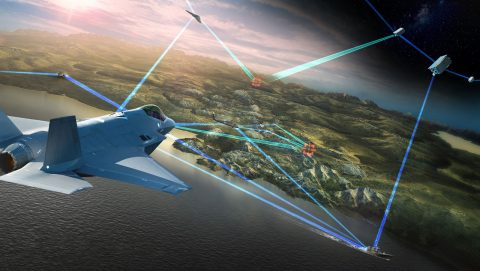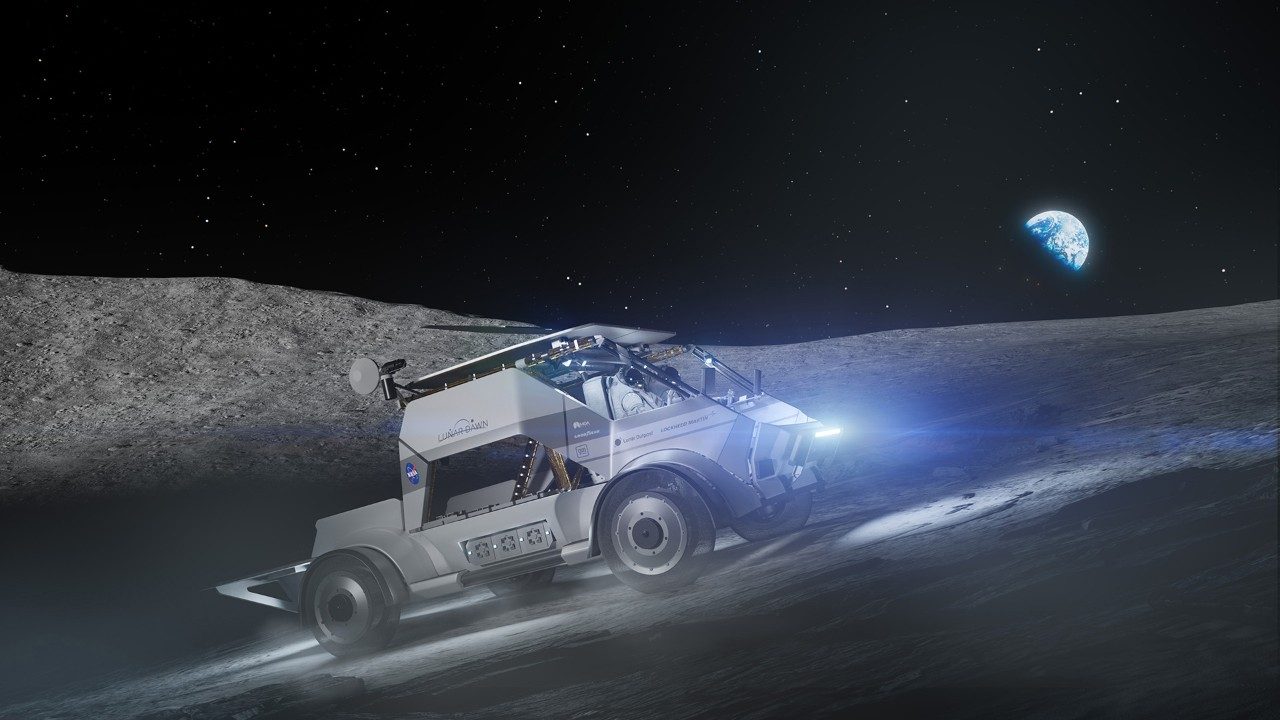Lunar Dawn Team Awarded NASA Lunar Terrain Vehicle Contract
It's time to get things rolling!
NASA has awarded a Lunar Terrain Vehicle (LTV) development contract to the Lunar Dawn team, led by Lunar Outpost in partnership with Lockheed Martin.
The Lunar Dawn LTV will give Artemis astronauts a safe and extraordinary mobile experience on the Moon, allowing accessibility across the lunar surface like never before. The vehicle will be able to operate crewed or uncrewed, with completely autonomous navigation and operation, and includes a reconfigurable cargo bed that will be able to load and carry numerous types of payloads thanks to its robust robotic arm.
Lockheed Martin brings decades of experience delivering highly complex deep space vehicles including the complexities that come with human space flight on programs like Orion, HLS Cislunar Transporter and planetary missions such as Lucy and OSIRIS-REx.
Opening Access to the Moon for All
A Game-Changing Vehicle
The Lunar Terrain Vehicle (LTV) provides unmatched capabilities, applying best of breed aerospace and automotive innovations in power systems, reliability and mission operations.
The LTV enables unprecedented exploration of the Moon with autonomous, telerobotic and manual operation. Transformational range, capability and support for astronauts & robotic missions unlock the full potential of partner initiatives, like Artemis - redefining the way in which we conduct deep space missions for science, exploration and emerging industry.

Capabilities and Services
Lunar Mobility as a Service
The LTV can travel over 1000 km in a lunar day, keep payloads alive during the lunar night, and explore permanently shadowed regions for multiple Earth days at a time. The vehicle's unique capabilities enable missions which stretch across the South Pole region and into the lower latitudes, through extreme terrain and into highest-value scientific or commercially aligned hotspots. It will act as a hardware demonstration platform, a low-gravity manufacturing plant, a prospecting & mining rig, a survivability testbed, a modular sensor hub, and an infrastructure enabler, supporting payloads for months or years as it travels.





Luna Ride
Lunar Science Rideshare
The MILO Space Science Institute (MILO) is seeking collaborations with international partners based on their unique capabilities and mutual scientific goals to participate in a lunar science rideshare mission, Luna Ride. MILO, a subsidiary of Arizona State University, will work with those interested in deploying payloads to the surface of the Moon on the Lunar Dawn Lunar Terrain Vehicle.
The Luna Ride mission will include transportation, communication, support for survivability, and deployment of payloads onto the lunar surface.

LTV in the News
Denver Gazette
The Washington Post
Automotive News






